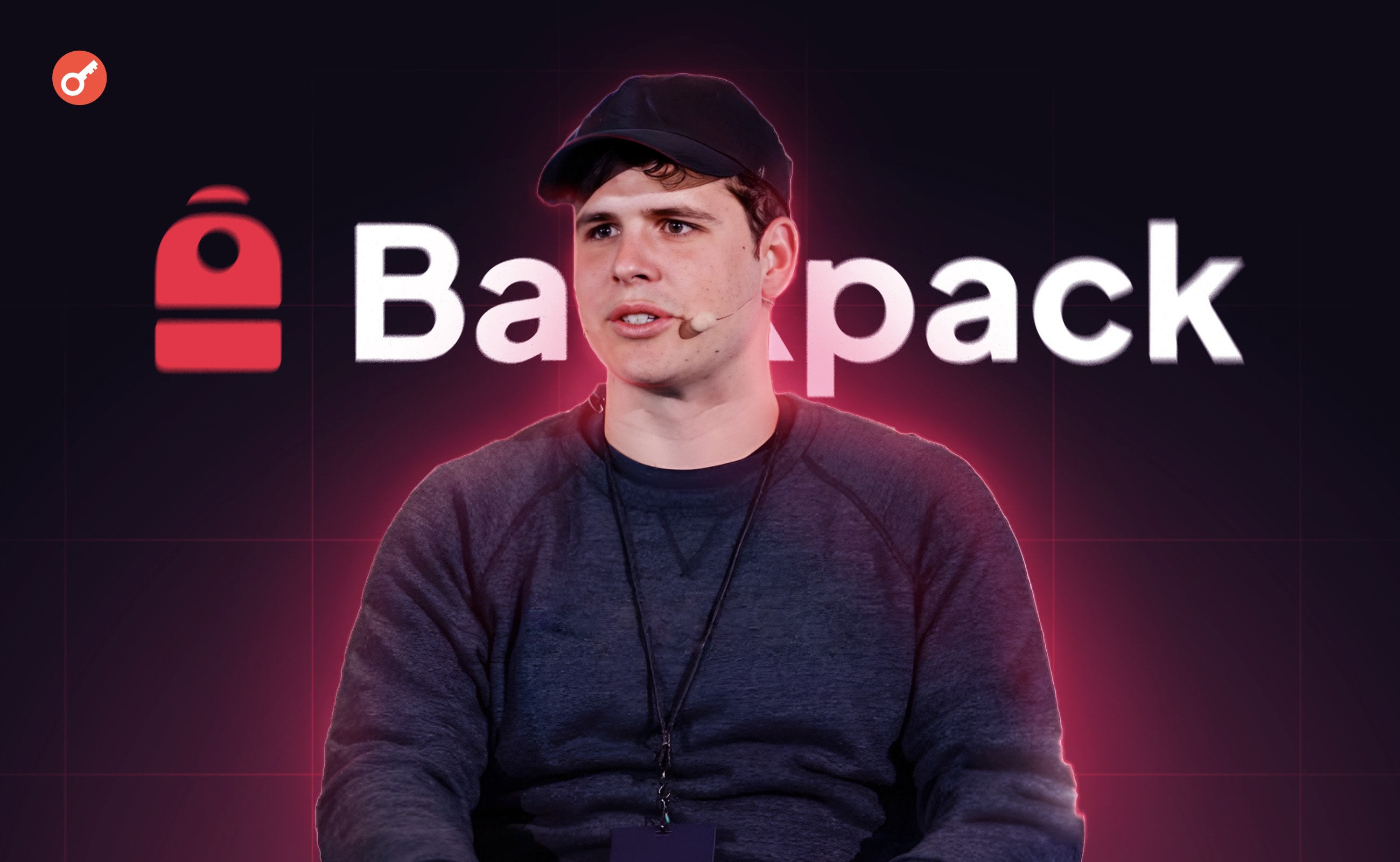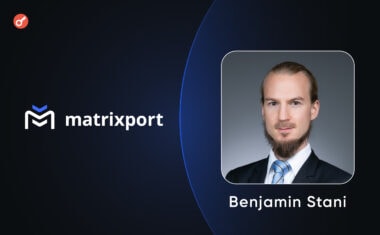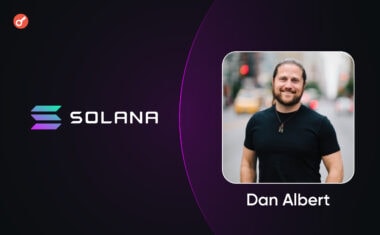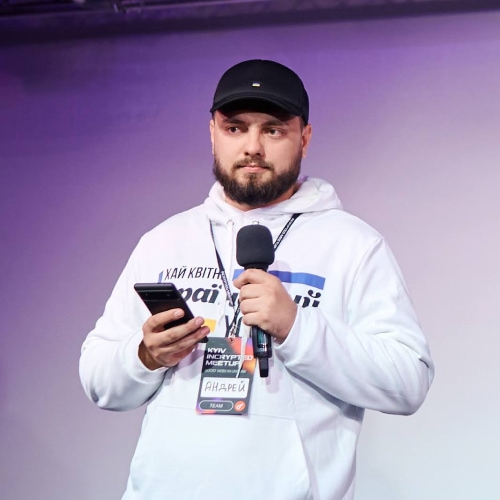WeChat for crypto: an interview with Backpack co-founder Tristan Yver

The ‘renaissance’ of the Solana began at the end of 2023 and is still ongoing. More and more projects are appearing in the ecosystem, some of which offer an innovative approach to products already familiar to the cryptocurrency industry.
One such project is Backpack, whose structure includes a non-custodial wallet, a centralized exchange, and a collection of non-exchangeable tokens using the new xNFT standard.
The Incrypted spoke with Backpack co-founder Tristan Yver. We talked about the development of the company, the specifics of raising funding in the crypto industry, the impact of the FTX crash on the business, and the potential launch of the token.
Today we are going to talk a little bit about your background, about Backpack, about your future plans and maybe a little bit about the crypto industry in general. Can you tell us how you got into the cryptocurrency and blockchain space?
In early 2020, I began working in crypto for the first time. I had been involved in crypto as a retail participant since early 2017 when I first found out about it. I really just loved the industry from the start.
I had been a big gamer for a long time. I had played games like RuneScape, and crypto felt very similar to those games that I had played growing up.
So, I joined in 2017 as retail, and then in 2020, I joined the industry working at an exchange. During that time, it was really great to learn a lot about the different pieces of the industry. As you can imagine, the exchange sort of sits at the center of everything that is happening. People tend to come in from every different part of crypto, and you learn a lot about the industry in general.
In early 2020, I started working on the Solana ecosystem. I was doing a lot of business development and project effect incubation, basically just bringing more projects into the Solana ecosystem in general, and helping flesh out that ecosystem because there wasn’t much happening there before.
When I was working on this Solana stuff is when I met Armani Ferrante [co-founder of Backpack]. He was also working on Solana stuff, and he was building out Anchor, which was the development framework that all the Solana engineers use. We got to know each other, and we had been working together for some time. Then, in early 2022, when he started Backpack, he invited me to join him.
Why Solana? Solana is not an obvious choice for the beginning of making your startup, and you’ve seen the rise and falls of crypto from 2017, of many blockchains, so-called Ethereum killers. Why did you believe in Solana?
I think the first time I used it, it just felt very different from anything that I had used before in crypto. It was extremely fast, it was extremely cheap. I didn’t even see my balance decrease from the fees paid for the transaction. It really clicked for me that there was an opportunity here for this to be a blockchain that helped grow the blockchain space outside of where it’s been so far.
I said, “Well, okay, well this blockchain here actually continues to grow, if people continue to build consumer products on this blockchain. I think there’s a chance here that this is the blockchain that will be able to onboard that next wave of users, that next generation of users.” And that just really stuck with me, and it made me think that Solana had a very strong chance from the start.
And then over time, that has just strengthened as I’ve gotten to see how strong the community is, as I’ve gotten to meet so many of the builders and teams across the ecosystem.
Also, I think it’s just hardened a lot as a protocol, as a blockchain. It’s had a lot of things that have been thrown at it, had issues, it’s had downtimes, and it just continues to improve. The downtime seems to be further and further in between. The amount of independent validators continues to increase. The number of people using the chain also continues to increase. So all of these things have been really strong beacons for the Solana blockchain.
So, when we started building out Backpack Wallet in 2022, which initially was just a wallet, we started on the Solana blockchain because it is where Armani and I had already done a lot of work. It was home-based for us. We knew a lot of people in the ecosystem, we had a lot of rapport there, and also, we had a lot of faith that it was a good blockchain to be building on.
Can you please tell a little bit about Backpack itself? You said it’s as a wallet, but now it’s kind of an ecosystem project. How did you come up from just a wallet to this variety of projects, and how do these variety of projects synergize with each other?
That’s a great question. Initially, we knew that we wanted to do something where we would be able to get our own distribution and that we wouldn’t have to be beholden to other projects for distribution. We quickly realized that a wallet is the base layer for most of everything happening in the on-chain world in crypto. This was right around the time when a lot of the Board Ape holders were getting phished; they were losing all of their funds. We realized that there was a problem that essentially folks needed better security in the wallet space, folks needed ways to not lose their funds, not lose their assets. So, we initially set off thinking about ways to solve that.
That was the initial idea that we started working on. Pretty quickly, we realized that all the security functionality that we wanted to add would require extra transactions or extra instructions on every transaction that the wallet had to send, which was going to be hard to make it work with other existing applications and stuff.
So, we stayed with this idea of the wallet, and we kept thinking about what were plausible ideas that would allow us to have a unique go-to market and be different from the other wallets. At the time, we realized that it was a bit too late to just go to market with the wallet and say, “Oh, it has better UI, it has better UX, you should use us.”
While we were going through this brainstorming process, we started thinking about WeChat. We said WeChat’s pretty interesting; you basically have this base application and on top of that application, you have all of these third-party developed apps that you can also use within the base application. We said, “How come nothing like that exists in crypto yet? How come there is no WeChat of crypto? Well, what if we were able to do something like that?”
And while we were thinking about how we could do it, we came up with the idea of xNFTs, which was our initial go-to market. xNFTs were these decentralized applications, and basically, the concept is simple: if you can tokenize a JPEG, you can also tokenize a bundle of code, and then all that you need is a place to run that code, and Backpack was the environment where you could execute that code. So, that was our go-to market at the beginning. We were a wallet that had decentralized applications, but pretty quickly, we realized that just doing product, just doing technology, wasn’t going to be enough. We also needed to have culture; we needed community, and that’s when the idea for Mad Lads started.
We realized that we wanted to have a group of people that care deeply about the things that we were doing, and we realized that an NFT community was the best way to achieve that. So, we started building out the Mad Lads project. There was a ton of excitement around it; we started doing all the different things through the wallet itself, which was the first time anyone had done that, which I think also contributed to the excitement people had for the project itself, for the Mad Lads. Not only were they NFTs, they were also xNFTs; everything was happening through the Backpack wallet. They saw us as a team that had the ability to build product and ship code, and people were really excited.
And right around that time of the mint of the Mad Lads is when we also realized that there’s a huge opportunity to fill the hole left behind by FTX, to fill the hole left by the mistrust that users may have of existing exchanges, and we decided that we were also going to do an exchange.
So, if you think of us right now, we’re typically a three-legged stool. We have the Mad Lads, which are our super users, they are our super fans, they are the community that basically boosts everything that we’re doing. We have the Backpack, which is our non-custodial wallet; it is the gateway through which our users can use the on-chain world. And then we have Backpack Exchange, which is the centralized exchange that people can use to onboard into crypto and then also onboard onto the Backpack wallet to go and use the on-chain world. So, it allows us to hold the user’s hand, to be there with the user for every part of their crypto journey.
A little step back about the NFTs. Can you share your thoughts about why NFTs in the Solana ecosystem, in general, are so popular? Because, in my personal opinion, I think the Solana’s community is one of the most active NFT communities on the whole blockchain. Can you please share your thoughts about this?
Yeah, I think a lot of it was that it was just so cheap to buy and sell NFTs, and I don’t mean necessarily the price of NFTs. I mean the fact that you didn’t have to pay tons of money on fees for every transaction. I think it made it easier for a lot of people to come onto Solana for NFTs in the first place.
Like, I think in 2021-2022, we actually saw a lot of brand-new people join Solana for NFTs. They came in for that specifically, and that just shaped what they thought NFT trading, NFT holding, NFT communities should look like. Essentially, that has continued forward where people no longer want to pay really high fees to buy a JPEG or to move it around. They want to be right there, make it really fast, really easy to do. And I think Solana unlocks that in a way that none of the other blockchains are doing at the moment. And then that, combined with an extremely strong community and the amount of people interested, just makes it the ideal place for the JPEGs.
Tell us a little bit about xNFT standards itself. Can you tell us what it is and how it works?
Yeah, so xNFT is just basically tokenized code. And so, what I mean by that is that right now, you have NFT metadata that exists across all the different chains, and you have a line in that metadata that’s called the URI. Usually, it just points to a JPEG that lives on Arweave or IPFS or S3, or wherever that image is hosted, and it says, “This token owns this image over here.”
You can add a second line or replace that line and make it so that the pointer now points at a bundle of code that lives on Arweave or IPFS or S3, and says, “This token owns this bundle of code.” And essentially, what you’ve created now is a decentralized application. And within Backpack, you can use these decentralized applications natively.
At the beginning of this interview, you mentioned Anchor. Could you tell us a little bit more about this solution? What does this framework do?
Yes, Anchor is basically a development framework that makes development on Solana easier. It’s developer tooling for building on Solana that Armani, my co-founder, built, and basically, every single project on Solana uses it. It is ubiquitous across the ground. Every single project is using Anchor to build because it is the best way to build on Solana at the moment.
You chose the UAE as a country for your registration. We’ve seen in the last few years that many companies are going to the UAE as their parent state. Why is it so popular now to open a company there?
Yeah, so VARA in Dubai is our principal regulator. We were the very first crypto exchange to receive their full retail license. The reason that VARA is a really good regulator is because they’re taking crypto super seriously. Dubai has a very strong crypto-first approach. They want to be a player in the Web3 space on the global scale, and so their regulators are very serious and are doing a really good job.
That’s a good place to start because it also shows good faith to other regulators that you work with, that you’re willing to get regulated by a regulator that is doing their job properly. Because that’s just going to mean it’s more work and it’s more effort to get that license and to be compliant and to do all the reporting and all the compliance necessities that come with that. So essentially, that was the theory there with VARA. We now have licenses in several other jurisdictions as well and we’re slowly expanding our offering.
So, right now, Backpack Exchange is live in the UK. We’re working on the Japan license to be able to serve the Japanese market. We’re working on being able to serve the European market. We have licenses in several Eastern European countries. We’re just really working on expanding the offering so that we can give Backpack Exchange to the world.
Can you please share a bit about your thoughts on the regulations of crypto? What do you think the ideal option should look like?
I don’t know what the ideal should look like. I think one of the really complex parts of crypto regulation is that every country is looking at it somewhat differently, and since it’s such an international thing that touches across so many borders, it’s really hard because then you have to adhere to the regulations of all the different jurisdictions that you’re trying to operate in. Which makes it really hard to know exactly what you’re supposed to be doing in every different jurisdiction, and it adds a lot of extra work to do things compliantly in the way that we’re doing.
So, I don’t know what the ideal crypto regulation is; I’m not that studied in that field. But I do think that we’re seeing different countries starting to take more measured approaches, such as Dubai. Japan is starting to put out more positive crypto legislation, and several other jurisdictions are doing the same.
You’re going to expand in different countries. Will you be going to expand some more tradable assets on your exchange? Because for me, to be honest, there are too few options to trade if you compare to the competitors or other exchanges or DEXes, for example. So, how are you trying to work in that direction?
Yeah, definitely. I mean, listings are one of the most important things you can do as an exchange: give your users the coins that they want to trade. And we’re expanding the listings. You know, we’ve only been live since late November, so obviously, there’s a lot more work to do there. We’ll be adding Bitcoin pretty soon, and then we’ll add Ethereum after that, and continue to list the top Solana projects. So, we’re working on it. The plan is to list a lot more tokens.
Recently, Backpack has closed a Series A funding round of 17 million dollars. What is the use of this money? Where are you going to spend it more efficiently to grow your community, your products, or maybe what is your main goal with this funding round?
Yeah, a lot of the capital is going to go towards licensing, compliance, and jurisdictional expansion, which is just very costly to do so properly. Also, there are scaling costs on the exchange side, which we need capital for. And we’re continuing to build out the teams and hire top talent around the world. So these are all things that the capital can be used for.
Compliance remains a big part of expenses as you mentioned also. Is this a problem?
I think it can be a problem for young, new companies that want to compliantly serve users in the cryptocurrency space. They require a lot more capital to do so properly, and it makes it harder to start these types of businesses. So, I think in that regard, it can definitely be an issue because it imposes capital constraints on companies if they want to launch, if they want to be able to do these services.
One of your previous rounds of fundraising in 2022 was participated by FTX Ventures. How did this affect you as a company? What are some of your takeaways from that time, and how did it affect your company and fundraising in the future?
Yes, I mean, what was really the worst part is that we had the majority of our treasury on FTX when it collapsed.
So, we had 14.5 million dollars in our company account on FTX because we were using it for treasury management. And essentially, we thought we were going to die for a moment when FTX collapsed. We saw the majority of our treasury disappear. Basically, we’re going to have to wrap it up. I don’t know if we can continue here.
And after some time, we were able to keep going, and we kept pushing. But that was a really, really difficult moment. And it just goes to show that you know, treasury management is really important to make sure that you have your treasury in such a way that no single entity can take you out of business. So, that was a huge lesson that we learned.
Tell us a little bit about your fundraising, about your first round and then this round.
Essentially, we showed them this stool that I was describing, this three-legged stool with the three different pieces that we had: the Mad Lads, the wallet, and the exchange.
We essentially just showed them how we’re thinking about the space from the exchange perspective, how we’re thinking about the space from the non-custodial perspective. Also, we showed them something that we have that almost no one in crypto has, which is distribution. This is the element of community, of grassroots marketing, of having a group of people that really care about what you’re building.
I think that these three pieces coming together were really inspiring for the investors. It allowed them to see the possibilities for major growth across the different things that we’re building. As such, they wanted to allocate capital into our company and support us on this mission.”
Are you looking to raise more capital?
I think growth companies generally continue to raise as they expand, gives the company the possibility to continue rapid expansion, which can be necessary in hyper-competitive fields like the one we’re in. So, definitely a possibility. We plan to keep growing massively in the different verticals that we’re pursuing, so further investor capital could definitely be helpful.
Please share: do you have any future announcements, any plans, or maybe some insight for us in terms of your general vision, your projects, maybe future plans?
I think on the exchange side, we’ll have some really exciting drops coming soon with some partners that we have. We’ll be doing these drop events similar to what we did with Pyth, and then we’ll be listing those projects.
We’ll continue to add more tokens. We’re working on futures for the exchange right now as well. We’ll add Bitcoin, we’ll add Ethereum, ERC-20s. So, just really continuing to flesh out our product offering and make it so that people feel compelled to use Backpack Exchange as their primary exchange.
On the wallet side, we just want to keep continuing to improve the user experience. We want to be the primary wallet that people use in the Solana ecosystem; that’s our goal there.
And then on the Mad Lad side, it’s just to continue to be there for the community, be present with them. They’re kind of a force of their own at this point; they really have their own growth and their own power just because they’re so active. But I think a lot of it is just being present with them and showing them that, you know, we really care about each of the people in it.
Sounds cool. I think the last question about Backpack itself, and this is the most, I believe, frequently asked question in your community, in our community, in the whole of the crypto community: ‘When token?’ or ‘When airdrop?’
So, we’ve been doing these drops with partner projects, and we have several of these in the pipeline like we did with Pyth. With Pyth, we distributed a lot of tokens when we launched the exchange. We have several more drops like this coming. But as far as the token, there are no plans for a token at this time.



